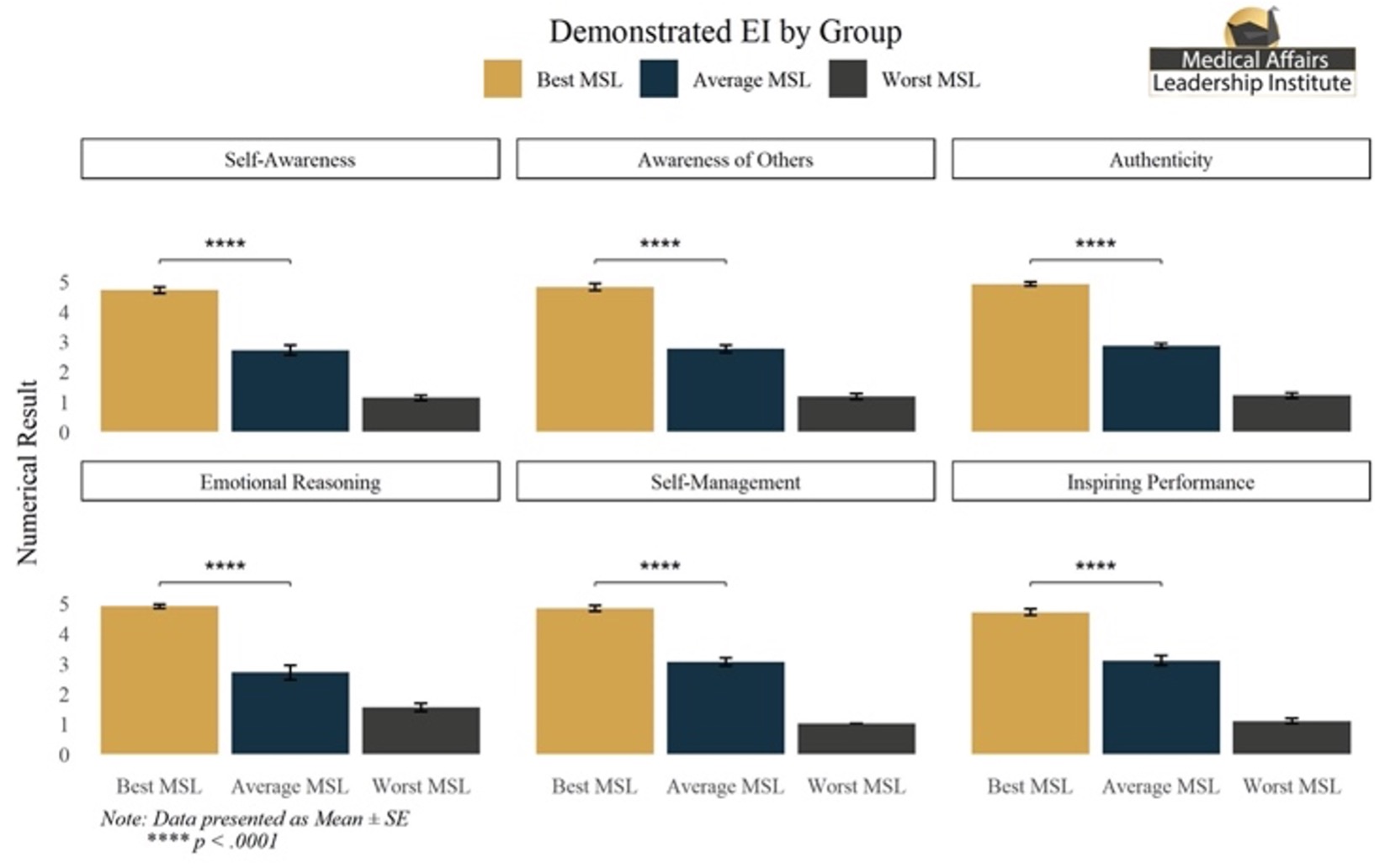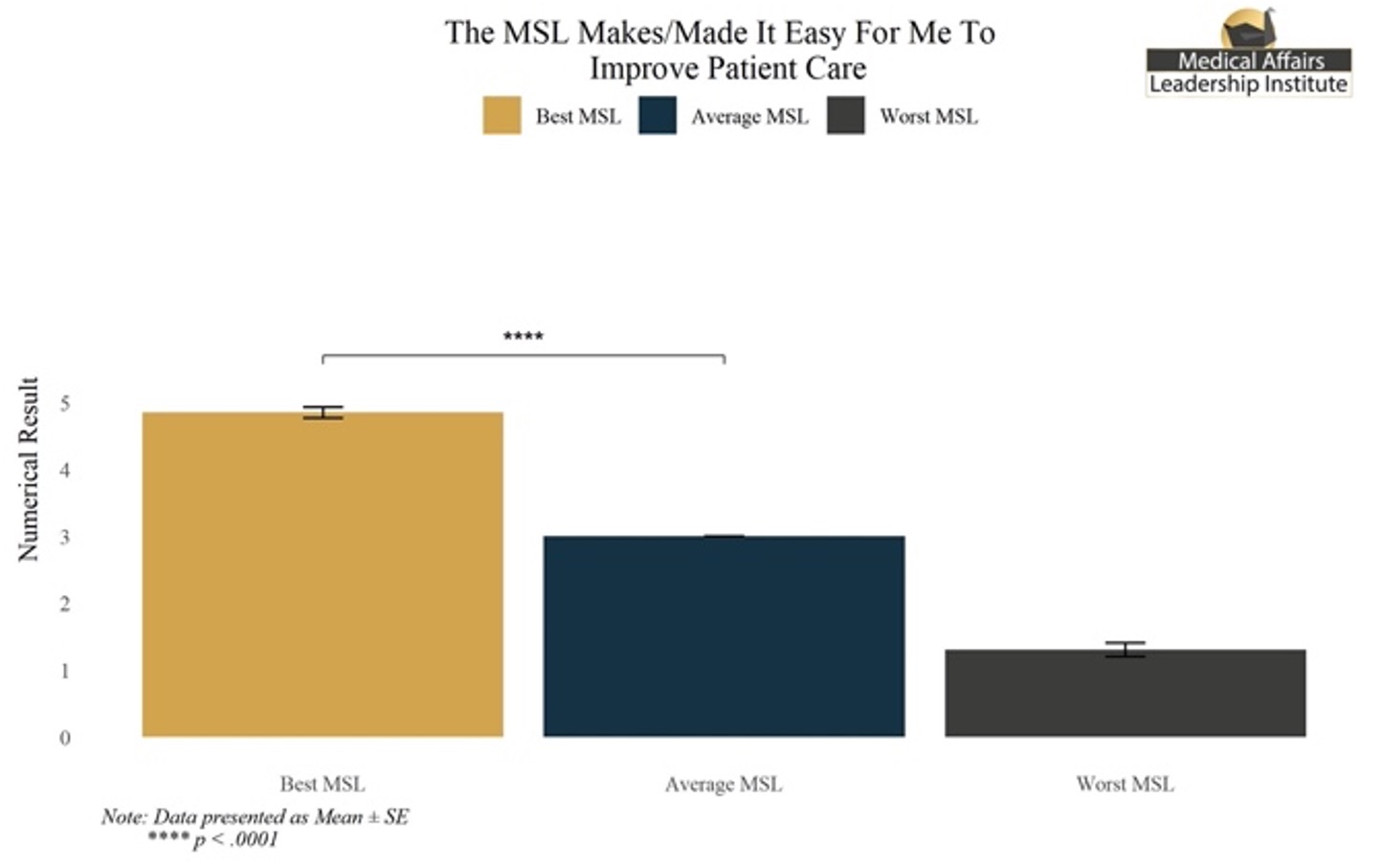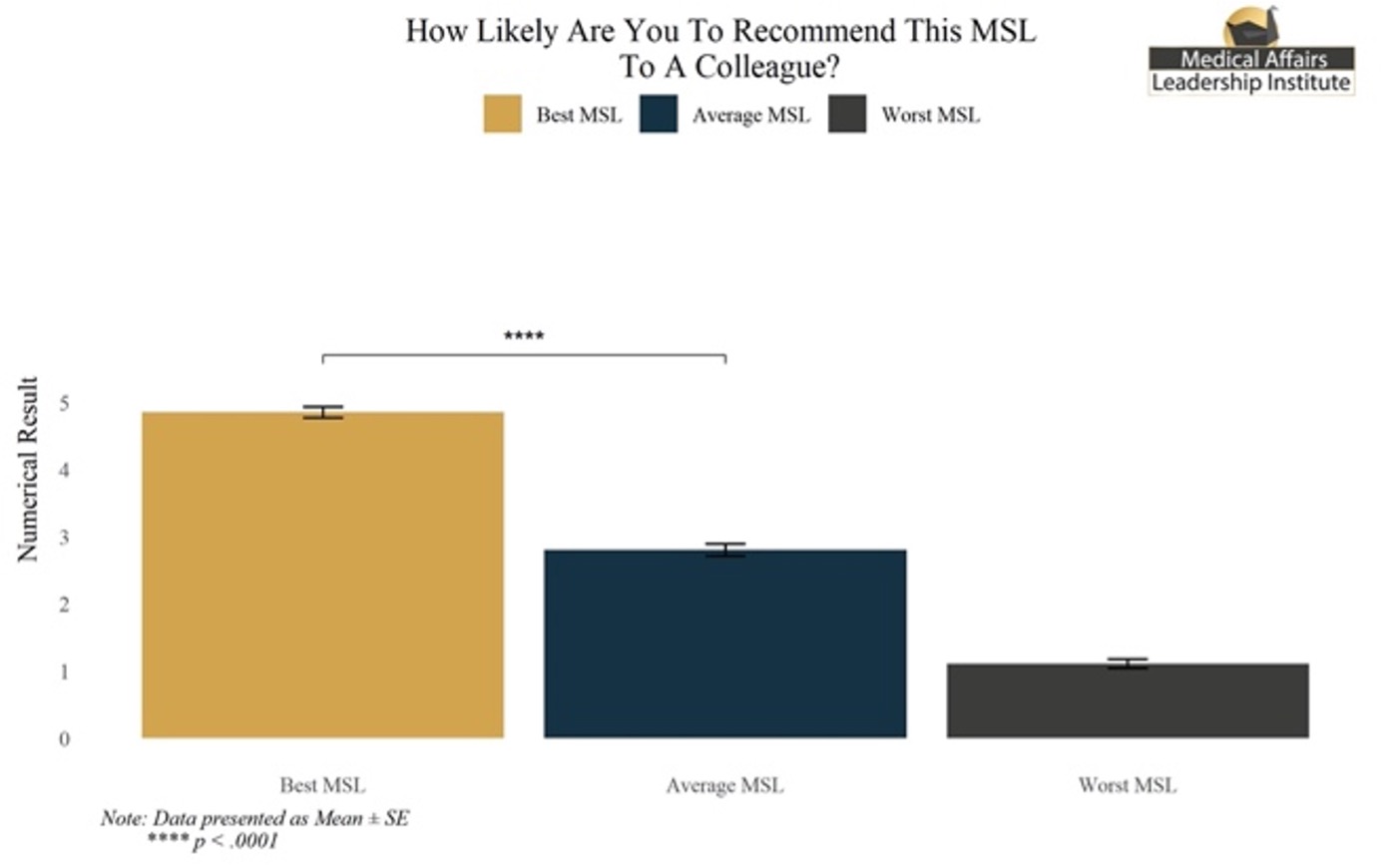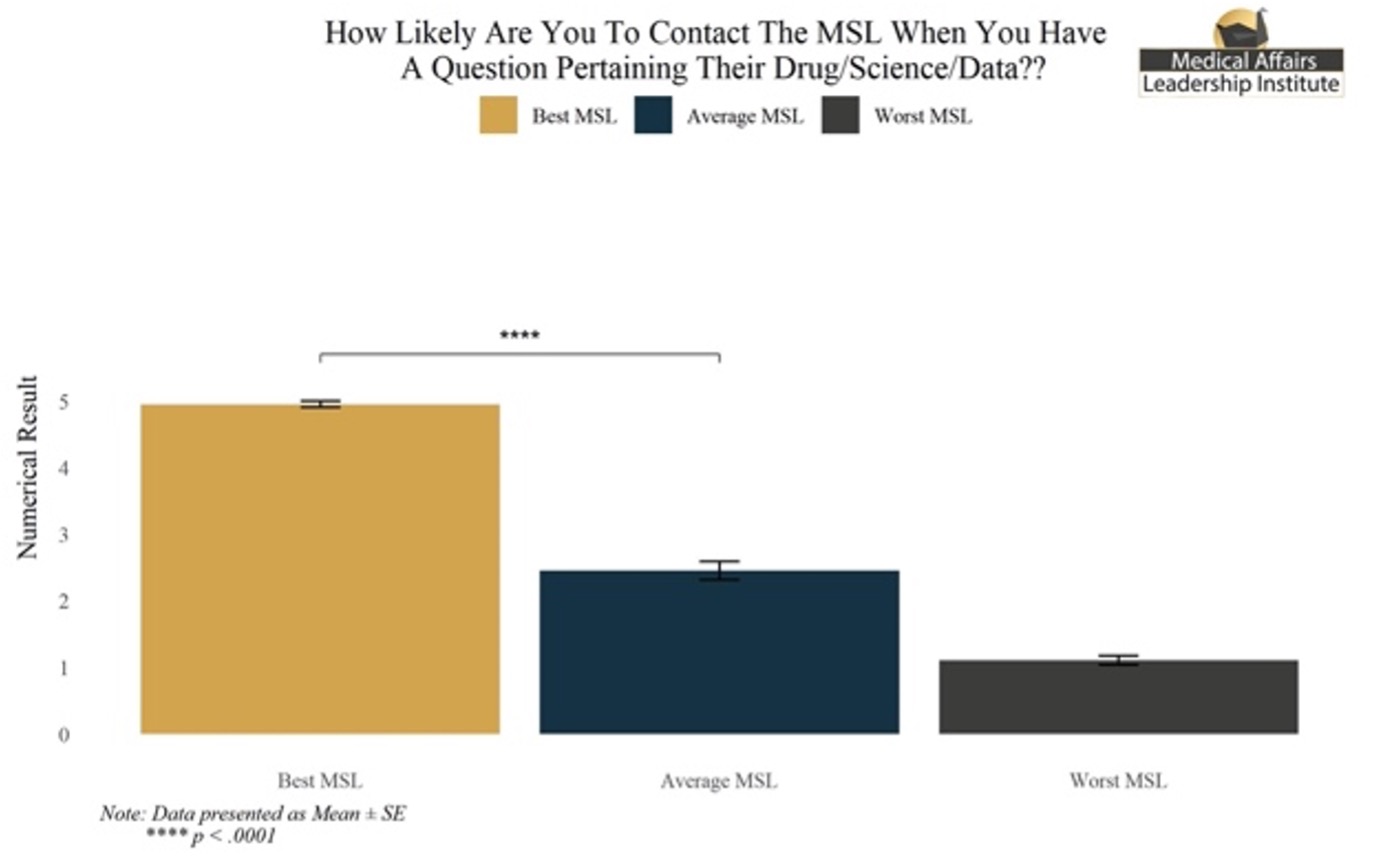Connect with Us
602 Park Point Drive, Suite 225, Golden, CO 80401 – +1 303.495.2073
© 2025 Medical Affairs Professional Society (MAPS). All Rights Reserved Worldwide.
Let’s be honest — there’s a reason why the best MSLs are worth their weight in gold. As the ultimate bridge between physicians and healthcare companies, they are the key to connecting external and internal shareholders while also generating and presenting essential medical data to them. Pharmaceutical companies, medical device manufacturers, cutting-edge biotech firms — none of these companies can do their important work without expert MSLs doing what they do best.
However, the lynchpin role of Medical Affairs professionals is a double-edged sword. When things seem to be going well, it’s easy to get lulled into a false sense of security. In other words, you may think you’re doing an outstanding job — when in reality, you’re achieving the bare minimum of your extraordinary potential.
Medical Science Liaisons are an excellent example here — as a professional in this field, you’ve obtained advanced degrees, likely becoming a true master of your field of expertise. Knowing that, you may think you already hold all the cards when it comes to succeeding as an MSL in the long run. But there’s one simple and yet key question that you may have forgotten to ask yourself: is there any room for improvement?
Remember, while a Medical Science Liaison obviously needs to have the proper Medical Science expertise and intellectual prowess, the truly crucial part of that job description is “Liaison.”
Apart from clinical, scientific, and everyday knowledge, a career Medical Science Liaison needs to have another essential quality that often remains forgotten when it comes to professional improvement: emotional intelligence.

Make no mistake — in a field where all professionals are esteemed intellectuals, the difference between a middling unknown and a Jeff Bezos is purely emotional intelligence. And while most MSLs would claim to be aware of this, the vast majority don’t put nearly enough work into improving this aspect of their professional skill set.
An effective MSL needs to have the listening skills that give them an understanding of the needs of various stakeholders and KOLs. As liaisons between them, MSLs must possess superb interpersonal skills that allow them to build lasting relationships. That’s the only way you can generate enough trust as an MSL to be considered a valuable source of relevant data.
If you’re not seeing the connection between what’s colloquially referred to as “people skills” and your personal emotional intelligence, studies have already shown the vast importance of the latter.
Research into the performance of sales representatives and front-line sales managers has shown a substantial causal link between improvements in emotional intelligence and sales performance.
These sales professionals went through a learning and development course designed to improve emotional intelligence in the workplace — and then their performance after the course was compared to the performance of their colleagues who didn’t undergo any emotional intelligence training.
The results were definitive — compared to the sales reps whose emotional intelligence faults hadn’t been addressed with training, the performance of those who did go through an emotional intelligence program increased by a whopping 18 percent!
If you’ve taken a closer look at the study above, you’ve probably noticed something: while the study was conducted within a pharmaceutical company, only sales reps participated. As an MSL, you’re probably rationalizing that the study’s results don’t apply to your own job performance — thinking that you’re doing just fine, and there’s nothing much to improve in your rapport with key stakeholders.
Well, think again.
While the importance of better emotional intelligence for MSLs has been largely cemented, there’s one crucial obstacle to overcome in obtaining it: tunnel vision.
As an MSL professional, you may not realize the thin ice most of your peers are treading on — and possibly even yourself. In terms of interpersonal skills that can only be improved through better emotional intelligence, there’s a good chance you’ve still got a long way to go before reaching your peak.
Before you dismiss this as conjecture, feel free to look at the cold, hard facts.
At the end of the day, you’re not the judge of whether you’re doing the best possible job in maintaining relationships with key opinion leaders — they are. A survey that 21 KOLs from major academic institutions on the East Coast participated in paints a realistic picture of the current state of Medical Affairs.
These KOLs were asked to fill a questionnaire describing how they perceived the level of emotional intelligence of the MSLs they’ve interacted with in the past — more specifically, the Best MSL, the Worst MSL, and an Average MSL professional* they’ve worked with. Also, the KOLs were asked about how the MSLs perceived emotional intelligence impacted their relations.
For most MSLs, the results will be absolutely shocking.

The survey data clearly shows a huge statistical difference in the perceived level of emotional intelligence demonstrated to KOLs by Average MSLs and the Best MSLs. It’s an astronomical difference, comparable to the disparity in skill levels of an amateur chess player with some experience and a Grandmaster.
In other words: when it comes to emotional intelligence, the Average MSLs, and the Best MSLs are not even in the same league.
The effects of this disparity in emotional intelligence on business outcomes are quite logically large. After all, stakeholder engagement is one of the primary roles of the MSL, along with data generation and information dissemination. These are roles they cannot fulfill to the best of their abilities unless they become a trusted advisor to the KOLs they engage with.
If an MSL is to assure a steady stream of relevant data and new information uptake, they must meaningfully engage with KOLs and be regarded as partners in patient care. This is further supported by the survey data.
When asked to gauge whether an MSL has made it easy for the KOLs to improve patient care, the KOLs provided insightful answers on whether they actually utilize data and information provided by the MSLs. As you might have assumed, the response to the work done to impact patient care by the Best MSLs has been largely positive.

However, the impact the Average MSLs have made by providing data and information to KOLs has proven to be disappointing — and definitely leaves a lot of room for improvement. This is also where the importance of emotional intelligence truly rears its head.
Sure, understanding the science is crucial for data uptake. But data uptake is more than that — an MSL needs to understand how the data actually impacts daily patient care in practice. In addition, you need to acknowledge and understand the emotional reasoning behind a physician’s decision to utilize or disregard the data — and in the latter case, act appropriately to change that.
The KOLs were also asked how likely they were to recommend the MSLs mentioned above to their colleagues and the likelihood of contacting them with questions about their drug, science, or data.

In both cases, the gap between the positive answers for the Best and Average MSLs the key opinion leaders have interacted with is just as substantial as with the previous metrics — meaning there’s a lot of room for improvement here as well.
After all, an MSL that isn’t getting referrals is simply less effective than their colleague who does. In the crowded and competitive space that MSLs operate in, the low impact and impression made by average MSL mean most professionals in this field need to work on their rapport.
Also, when KOLs don’t feel that MSLs could provide meaningful answers to questions about their data, the relationship between the MSL and the KOL is clearly not solid enough — and the MSL is not considered a true partner in patient care.

If that’s the case, can an MSL truly provide value to their MA department and the entire company in the long run? If they’re not getting relevant and actionable insights from KOLs as a result of their mutually beneficial relationship, they’re simply not doing a good enough job.
If you think KOLs are not aware of this, you’d be sorely mistaken. The last survey question provided meaningful (and shocking) data on this: KOLs regarded a stunning 88.89% of the MSLs they interacted with as “average.”
The fact that most key opinion leaders don’t consider a majority of the MSLs they interact with as above-average speaks volumes about the state of the field.
The current landscape of Medical Affairs shows most MSLs are, in a far more precarious position than they think. There should be far less of a gap between the interpersonal and relationship-building skills of the average MSL and a top-tier one.
However, bridging that gap will not be possible without some healthy introspection and hard work. All of that is only possible through driven, conscious improvements of the MSLs emotional intelligence. Those that work hardest on their “people skills” will reap the highest rewards — likely materialized in relevant and actionable insights that will drive the best medical strategies, reduce waste of resources, and result in compounds getting to market sooner or penetrating deeper.
At the end of the day, mental fitness requires the same regular interval of work that physical fitness does. And that means training, tweaking, and increasing your emotional intelligence to break through personal barriers and improve your value and impact as a Medical Affairs professional.
* Details of the study and definitions available upon request.
A special thanks goes out to Matt Gady from DDI, Jeff Summers from GENOS International for cocreating the survey and Jake Bernards for the statistical analysis. I also want to thank the many Medical Affairs leaders who have so gracefully shared their time and provided me invaluable feedback.
A follow up study is planned to measure the impact of increasing the level of EI on the impact of Medical Affairs KPIs and deliverables.
The Innovate article series highlights the ideas of Medical Affairs thought leaders from across the biopharmaceutical and MedTech industries. To submit your article for consideration, please contact MAPS Communications Director, Garth Sundem.
602 Park Point Drive, Suite 225, Golden, CO 80401 – +1 303.495.2073
© 2025 Medical Affairs Professional Society (MAPS). All Rights Reserved Worldwide.

 Next-Gen Medical Information Leveraging Digital to Enable Self-Service and Omnichannel...
Next-Gen Medical Information Leveraging Digital to Enable Self-Service and Omnichannel...